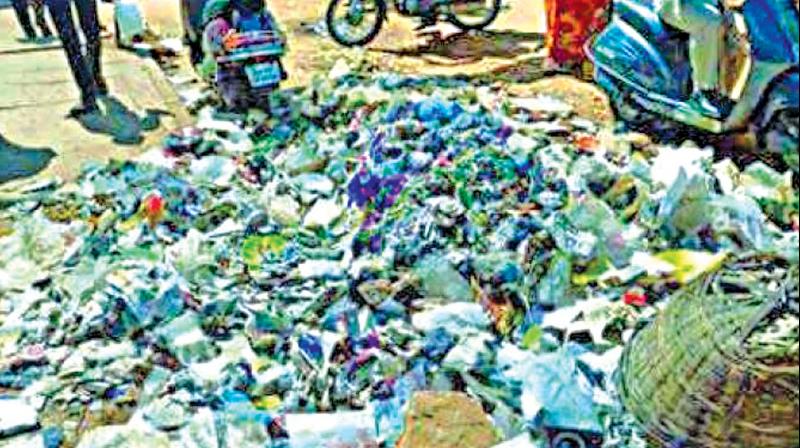Tamil Nadu: Biomedical waste needs immediate treatment
State hospitals yet to adhere to MCI guidelines on setting up effluent treatment plants to treat liquid medical waste.

Chennai: In a clear violation of the Biomedical Waste (Management and Handling) Rules, 2016, formulated a year ago, none of the 22 government medical college hospitals in the state owns an effluent treatment plant (ETP) to treat the liquid medical waste. In a ground check conducted by Deccan Chronicle, it was learnt that Government College Hospitals, including Stanley Medical College and Madras Medical College, let out their highly pathogenic liquid into the common city sewer system, without an adequate treatment.
Medical experts also admit that the Christian Medical College (CMC) Hospital, Vellore, was the only set up to have installed a comprehensive ETP and a recyclable unit 17 years ago, thereby adhering to the Biomedical Waste Rules, 2016. Ironically, the 22 Government Medical College hospitals are now in the preliminary stages of attaining permission from the Tamil Nadu Pollution Control Board (TNPCB), to set up ETPs, said a TNPCB official.
“Around 50,000 litres of liquid waste water generated from laundry is treated and recycled each day. The hospital also recycles grey water generated. We upgraded our ETP last year in line with the biomedical waste rules,” said Sadhu Sundar Singh, officer-admin, Laundry department, CMC. B. Jagadeeshan, junior engineer for steam laundry, Stanley Medical College Hospital, admitted about the absence of an ETP as he said, “We are leaving the liquid waste in the corporation sewage pumping station after treating it with sodium hypochlorite. We have sent a proposal to the government for an ETP and are awaiting a response.”
Taking a dig at the poor infrastructure in government medical colleges, activist Jawaharlal Shanmugam said, “Sodium hypochlorite is a poor disinfectant and is ineffective in the presence of blood, mucus, protein and turbid liquid. Only after the liquid biomedical waste is segregated and treated through an ETP, is sodium hypochlorite procedural.” He is fighting the biomedical waste case at the Southern Bench of the National Green Tribunal (NGT).
Sources from Kilpauk Medical College and Madras Medical College also admitted about the absence of an ETP at the hospitals. “As we have a steam laundry, there is no liquid biomedical waste generated. However, we will be setting up ETPs soon, to treat the liquid waste from the sewerage system,” said a senior official. “It is very clear that any liquid biomedical waste from a hospital has to be treated before being let into a common sewer line. According to the Biomedical Waste Rules, 2016, every hospital should have a sewer treatment plant comprising of an aeration tank, clarifying tank, sludge removal and disinfection of liquid through a sustained dozing system,” added Shanmugam.
“We are slowly working on implementing all the requirements of the MCI guidelines, 2016,” said an official at Stanley Hospital. During the hearing at the NGT on Thursday, he had put forth the lapses in the TNPCB, which permitted the set up of the medical colleges, without proper infrastructure norms. “How can the TNPCB give consent to operation under the water (prevention and control of pollution) Act?” he asked.

